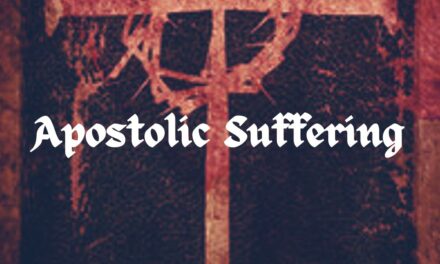7 C’s of Sparking and Sustaining a Ministry for Transformational Presence on the Ground for New Teams in a Missional Order
In the first six months of living and ministering on Minnie Street during the spring and summer of 1985, I often found myself overwhelmed by the staggering levels of need among Cambodian refugees and Latino immigrants. Likewise, from the perspective of assets in the community, my sense of inadequacy as a missionary deepened when I considered that I had little experience in helping identify and organize the profound personal resources my neighbors possessed of resilience, perseverance, and interdependence. Furthermore, I realized that it was a unique privilege to minister on Minnie Street among the poor and marginalized who biblically, God confirmed, to be the “rich in faith.” In the face of these three elements: the need, the opportunity, and the privilege, I felt my inexperience keenly.
Consequently, I began to pray fervently for missionaries who were better, more experienced, and more skilful than me. One afternoon, I sensed God consent to honor my prayers to bring people better than me. But in seeming contradiction, I also sensed him confirming that they would be “ordinary.” It seemed he preferred to do the work on Minnie Street, and the work in InnerCHANGE, generally, through ordinary people. At first, that seemed odd to me. From the standpoint of the needs, alone, Minnie Street clearly resembled a New Testament setting in which missional workers must be able to “heal the sick, bind the wounds of the broken hearted, and set the captives free”—literally. Faith efforts of that magnitude didn’t seem to be jobs for ordinary people. I tried to enter into God’s confidence of sending ordinary people by reminding myself of the biblical assurances that when we are weak, God makes us strong, that God delights to work through the humble, that he make the last first, and that he loves to send lambs among wolves. Still—I was uneasy because Minnie Street seemed a stretch for this kind of tactic.
Then I felt God question me: “John if I give this ministry to ordinary people, how will you creatively use your imagination to structure them so that they can enter into extraordinary results?” I knew from history that the only wineskins that had sustained missionaries among the poor for hundreds of years of consistent upside-down Kingdom work were the religious orders, especially the Catholic Mendicant Orders like the Franciscans and Poor Clares. This series of conversations with God encouraged me to respectfully explore what it might mean to use order as a wineskin. As God added people to InnerCHANGE we entered into this explorative journey together and listened collectively for how God might want to re-imagine the order wineskin. In essence, we were asking important questions such as: “How do lives of mutual commitment liberate us to be all we can be, not simply all an individual can be?”
Exodus 3 gives us a beautiful picture of God appearing to Moses in a bush on fire that is not consumed. In 2009, I sensed God offering the burning bush as a guiding image for InnerCHANGE as an order. He impressed upon me that he liked to picture us as an ordinary bush burning with a supernatural fire. Along with this image came a caution: As long as we are content with the humility of being an ordinary bush, God can bless us with an extraordinary fire. But if we give in to insecurity and strive through performance to appear on the surface as an extraordinary bush—-he can only bless us with an ordinary fire. God’s work among the needy is so personal and dear to him, he says in his word, “I the Lord will answer them” (Isaiah, 41:17). As members of InnerCHANGE we are called to celebrate God’s work among people in poverty, not in any way to celebrate ourselves.
It has been identified insightfully, with religious orders in mind: “elitism is the disease of the committed.” We do not want to fall prey to that temptation. We did not structure ourselves as an order because we are special and want to be confirmed as elite, we structured ourselves as an order because we are ordinary and want to be effective.
Lastly, our structure may vary slightly from site to site as we follow the Spirit in context shaping what disciplines and rhythms are most practical and relevant in expressing a committed Kingdom life ordered to a liberating authority.
Calling
Our calling is to the person of Christ among the poor—to an incarnational Lord, not simply to an incarnational model of ministry. Our calling, first and foremost, is to be “with him” (Mark 3:14). This bedrock intimacy sets up our highly relational calling to be with people in poverty in a mutual ministry of presence.
Many of our members have a profound sense of this calling before they join InnerCHANGE. But many are simply drawn to aspects of the life and ministry of InnerCHANGE and want to explore a potential call. For both, we encourage graduated levels of commitment in order to discern, and ultimately deepen and confirm this sense of calling. We seek to embody the words of Micah 6:8 as prophets who do justice, missionaries who love mercy, and contemplatives who walk humbly with our God. Our lives in ministry flow out of both doing and being, but all of that starts by being with.
An active and vital sense of calling allows us to thrive in places the world has found wanting and encourages us to see clearly both the challenges and the opportunities. We have found five elements to be especially useful in cultivating our calling, deepening our formation, and sustaining our people well: Context, Community, Coaching, Curriculum, and Care.
- Context. God’s love affair with place means that in every location we commit ourselves to, God is already present and has gone before us. Whether we are “remainers,” “returners,” or “re-locators,” we expect to “grow up in the culture,” that is, to be formed by the place and people around us. If we are entering the community from outside, we must be prayerfully self-aware of our own cultural heritage and resist impulses to act prematurely in ways that overshadow local assets. If we are ministering as a remainer we must allow God to refresh “tired eyes” in order to join him in potentially seeing “all things new.” In every place struggling with poverty, God is composing redemptive narratives with his people and it is a privilege to join in as a learner and servant. Contexts are places to do life, not just ministry—places to experience mutual relationship and process joy and pain as neighbors, teammates, and volunteers.
- Community: We say in InnerCHANGE that it takes a community to reach a community. It is helpful to have multiple eyes and multiple gifts at work in transforming communities. More than this, however, we believe God delights in orchestrating renewal through the work of a body. Thus, we commit to community expecting to complement one another’s efforts more than to individually excel. One person’s weakness is invitation to another’s strength. We want to allow God to produce the synergy he loves that adds up to more than the sum of its parts. Furthermore, working out of community postures us naturally to make disciples who are able to follow the Lord as individuals but also stand ready to be part of the living Body of Christ.
Working in community as missionaries and neighbors provides critical support in tough places—a vehicle to experience the reality of the proverb that “shared joy is double joy; shared sorrow is half sorrow.”
- Curriculum: Scripture is our first and most important foundation for curriculum. We are formed as we engage in conversation with God through his word. As much as possible, we seek to sequence our learning tools and spiritual disciplines alongside biblical narrative. We remind ourselves that “unless the Lord builds the house, we labor in vain” (Psalm 127:1). Biblical story gives our formation processes a kind of “scaffolding” that postures our labor to more readily be shaped by the Spirit.
When we assume that God is working purposefully among us in a Kingdom building enterprise, then our every action will encourage reflection. We use a number of learning tools in InnerCHANGE, both formal and informal, including apprentice and novice cohorts, learning community, rhythms of prayer, sabbath and retreat, but action reflection undergirds and guides them. We especially prize learning processes that are flexible and reproducible.
- Coach: If we are listening to our workers on the ground and appreciating the unique nature of each context, leaders in InnerCHANGE will generally find it more appropriate to act as bottom-up coaches rather than top-down directors. Coaches, drawing from the wider body of InnerCHANGE, also act to encourage fresh outlooks on areas of struggle when teams occasionally get “ingrown.” Especially for new teams, coaches will ensure that peer mentoring, within a team, and from team to team, is happening.
Whether coaching meetings are weekly or monthly, in person, or on Skype, there should be a rhythm to them. Coaching is driven more by prayer than skill, though both are important. We remind ourselves that coaching others is a privilege founded on the unseen understanding that prayer is a necessity.
- Care: The apostle Paul stressed that disciples growing in Christ may have many teachers, but “few fathers in the faith” (1 Corinthians 4:15). There is a family aspect to healthy mission communities that means we have the privilege of stewarding whole people, not simply supervising professionals. We are ready to listen to, learn from, and love one another as deeply as God gives us ability. We serve a God who loves us unconditionally and never generically, so our work in caring for others will always be personal and respectful with an eye for equipping our team members to grow and sustain one another more ably.
Consolidating
Incarnational mission is rigorous, nuanced, and challenges us with many unexpected lessons. An appreciation for context, community, curriculum, coaching, and care can significantly enhance our experience on the mission field. In a world pregnant with so much Kingdom possibility, it is not enough to go on a journey to the margins, but to build a road that others may follow. Acting, reflecting, and recording in creative and reproducible ways is part of responsibly stewarding the experience God gives us. At their best, orders historically have nurtured their charisms through creating “track” for others to follow behind them, so that God’s work of reimagining communities as inherently progressive.


